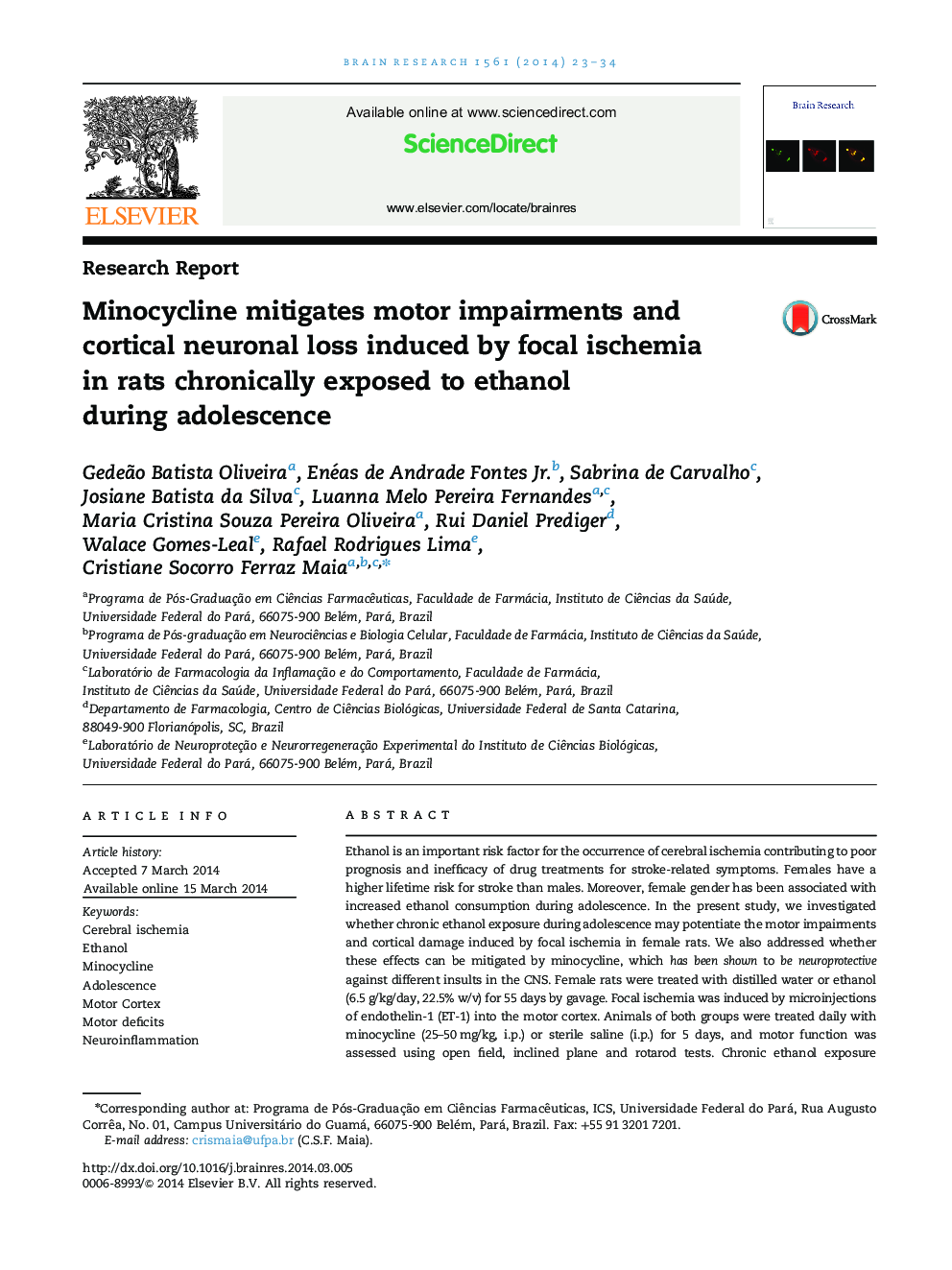| Article ID | Journal | Published Year | Pages | File Type |
|---|---|---|---|---|
| 6263371 | Brain Research | 2014 | 12 Pages |
â¢Effects of i.p. Minocycline in ischemized mice, in the presence of o.r. ethanol.â¢Motor function was assessed using open field, inclined plane and rotarod tests.â¢Ethanol-intoxicated ischemic animals displayed motor deficits.â¢Minocycline treatment reversed both motor impairment and neural cell loss.â¢Minocycline induces functional recovery in ischemic rodents even with ethanol.
Ethanol is an important risk factor for the occurrence of cerebral ischemia contributing to poor prognosis and inefficacy of drug treatments for stroke-related symptoms. Females have a higher lifetime risk for stroke than males. Moreover, female gender has been associated with increased ethanol consumption during adolescence. In the present study, we investigated whether chronic ethanol exposure during adolescence may potentiate the motor impairments and cortical damage induced by focal ischemia in female rats. We also addressed whether these effects can be mitigated by minocycline, which has been shown to be neuroprotective against different insults in the CNS. Female rats were treated with distilled water or ethanol (6.5Â g/kg/day, 22.5% w/v) for 55 days by gavage. Focal ischemia was induced by microinjections of endothelin-1 (ET-1) into the motor cortex. Animals of both groups were treated daily with minocycline (25-50Â mg/kg, i.p.) or sterile saline (i.p.) for 5 days, and motor function was assessed using open field, inclined plane and rotarod tests. Chronic ethanol exposure exacerbated locomotor activity and motor coordination impairments induced by focal ischemia in rats. Moreover, histological analysis revealed that microinjections of ET-1 induced pyramidal neuron loss and microglial activation in the motor cortex. Minocycline reversed the observed motor impairments, microglial activation and pyramidal neuron loss in the motor cortex of ischemic rats even in those exposed to ethanol. These results suggest that minocycline induces neuroprotection and functional recovery in ischemic female rats intoxicated with ethanol during adolescence. Furthermore, the mechanism underlying this protective effect may be related to the modulation of neuroinflammation.
